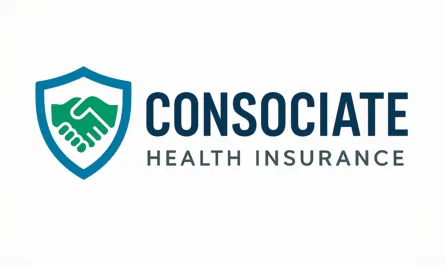What Insurance Does Oak Street Health Accept? A Complete Guide for Patients in 2025
When choosing a healthcare provider, one of the most crucial questions people ask is, “What insurance does Oak Street Health accept?” In today’s world of rising medical costs and complex coverage plans, understanding which health insurance policies are accepted by your primary care provider is more important than ever.
If you’re considering Oak Street Health for yourself or a loved one, this in-depth guide will answer your questions about Oak Street Health acceptance, including Medicare, Medicaid, private plans, and more.
Whether you’re planning to switch providers or enrolling in a new insurance plan, read on to get everything you need to know about what insurance does Oak Street Health accept in 2025.
What Is Oak Street Health?
Before diving into Oak Street Health acceptance, it helps to understand who they are and what they do.
Oak Street Health is a value-based primary care provider that focuses on adults aged 65 and older. Founded in 2012, Oak Street Health now operates in more than 25 states across the U.S. and has rapidly grown as a leader in senior-focused healthcare.
They offer:
Primary care for older adults
Preventative care and wellness support
Chronic disease management
Behavioral health services
Transportation assistance
Telehealth options
With their unique approach to personalized care, many seniors are now turning to Oak Street Health as their go-to provider. But to make the switch, you need to know Oak Street Health acceptance.

Why Insurance Coverage Matters at Oak Street Health
Choosing the right provider isn’t just about the quality of care—it’s also about coverage. Understanding what insurance does Oak Street Health accept helps you:
Avoid out-of-pocket costs
Make informed choices during Medicare enrollment
Ensure uninterrupted care
Choose the best health plan based on your doctor preference
For seniors especially, insurance acceptance is crucial because switching doctors mid-year can be difficult or disruptive. That’s why asking about“Oak Street Health acceptance?” early in your decision-making process is essential.
What Insurance Does Oak Street Health Accept in 2025?
Now, let’s get to the heart of the question about Oak Street Health acceptance?
As of 2025, Oak Street Health accepts a wide range of insurance plans, particularly those designed for seniors. Here’s a breakdown of the accepted plans.
1. Medicare Advantage Plans
This is the most common type of insurance accepted at Oak Street Health. If you’re wondering what insurance does Oak Street Health accept, Medicare Advantage is likely at the top of the list.
Accepted Medicare Advantage carriers include:
Aetna
Humana
UnitedHealthcare (UHC)
Cigna
Anthem Blue Cross Blue Shield
Wellcare
Molina Healthcare
Devoted Health
Clover Health
Note: Specific plans and availability vary by state. You should always contact your local Oak Street Health center to confirm Oak Street Health acceptance in your region.
2. Traditional Medicare (Original Medicare Part A & B)
While Oak Street Health focuses on Medicare Advantage, many centers also accept Original Medicare. So if you’re asking Oak Street Health acceptance, and you’re on traditional Medicare, there’s a good chance you’re covered.
However, you may also need a Medicare Supplement Plan (Medigap) to cover additional out-of-pocket costs.
3. Medicaid (In Some States)
Medicaid acceptance at Oak Street Health depends on the state you’re in and the availability of dual-eligibility programs.
For those wondering what insurance does Oak Street Health accept when it comes to Medicaid, here’s what you need to know:
Oak Street Health may accept Dual Eligible Special Needs Plans (D-SNPs) for those with both Medicare and Medicaid.
In some areas, Medicaid Managed Care plans are accepted in partnership with insurers like Molina or Aetna Better Health.
Again, your best bet is to ask your local clinic what insurance does Oak Street Health accept for Medicaid patients.
4. Private and Employer-Sponsored Insurance
Oak Street Health is primarily Medicare-focused, which means most private, employer-sponsored plans are not accepted unless they’re Medicare Advantage plans for retirees.
If you’re under 65 and have private insurance, you should verify with your insurer what insurance does Oak Street Health accept in your area, or consider other in-network providers.
5. Veterans’ Health Insurance (VA Benefits)
Oak Street Health typically does not work directly with the VA system. However, veterans who are eligible for Medicare Advantage or Medicare-Medicaid may still receive care.
If you’re a veteran and wondering what insurance does Oak Street Health accept, check if your Medicare Advantage plan is accepted.
How to Check If Your Plan Is Accepted
Still asking yourself what insurance does Oak Street Health accept? Here’s how to get a clear answer:
1. Use the Oak Street Health Website
Visit oakstreethealth.com and use the “Check my insurance” tool to enter your ZIP code and insurance plan. The system will tell you immediately whether you’re covered.
2. Call a Patient Relations Manager
Each Oak Street Health location has dedicated representatives who can answer your questions about what insurance does Oak Street Health accept over the phone.
3. Speak With Your Insurance Provider
You can also call your insurance company directly and ask: “Is Oak Street Health in my provider network?”
This three-step verification ensures you’re fully informed about what insurance does Oak Street Health accept before committing.
What If Oak Street Health Doesn’t Accept My Insurance?
If your current plan isn’t accepted and you still want to switch to Oak Street Health, you have options:
Change Your Plan During Open Enrollment: Medicare Advantage open enrollment occurs from October 15 to December 7 each year.
Use a Special Enrollment Period (SEP): You may qualify for a SEP if you move, lose coverage, or become newly eligible for Medicaid.
Consider Dual-Eligibility Plans: If you qualify for both Medicare and Medicaid, ask your plan advisor Oak Street Health acceptance under D-SNPs.
Why Choose Oak Street Health?
Now that you know Oak Street Health acceptance, here’s why people choose them as their primary care provider:
Comprehensive Senior Care: Tailored care plans for aging adults
Personalized Appointments: More face time with doctors—up to 40 minutes per visit
On-site Support: Labs, pharmacies, and social workers available in one location
Transportation Services: Free rides to and from appointments
Telehealth Options: Virtual visits for convenience and safety
Their mission to rebuild healthcare as it should be has resonated with thousands of seniors across the country.
Locations Where Insurance Plans May Vary
Since Oak Street Health acceptance can change based on your state and clinic, here are some states where plan availability is known to vary:
Texas
Florida
Illinois
Michigan
New York
Pennsylvania
North Carolina
Georgia
Nevada
Missouri
To ensure accuracy, always contact your local clinic or use Oak Street Health’s online tool to confirm Oak Street Health acceptance in your city or ZIP code.
Final Thoughts
Navigating health insurance options can feel overwhelming, but knowing what insurance does Oak Street Health accept can help you make informed, confident choices.
Here’s a quick recap:
Oak Street Health primarily accepts Medicare Advantage plans from major providers.
Many centers also accept Original Medicare, D-SNPs, and some Medicaid plans.
Use their online tool or call a local clinic to verify Oak Street Health acceptance in your area.
By staying informed and reviewing your plan during open enrollment, you can ensure continuous, high-quality care without surprise medical bills.



